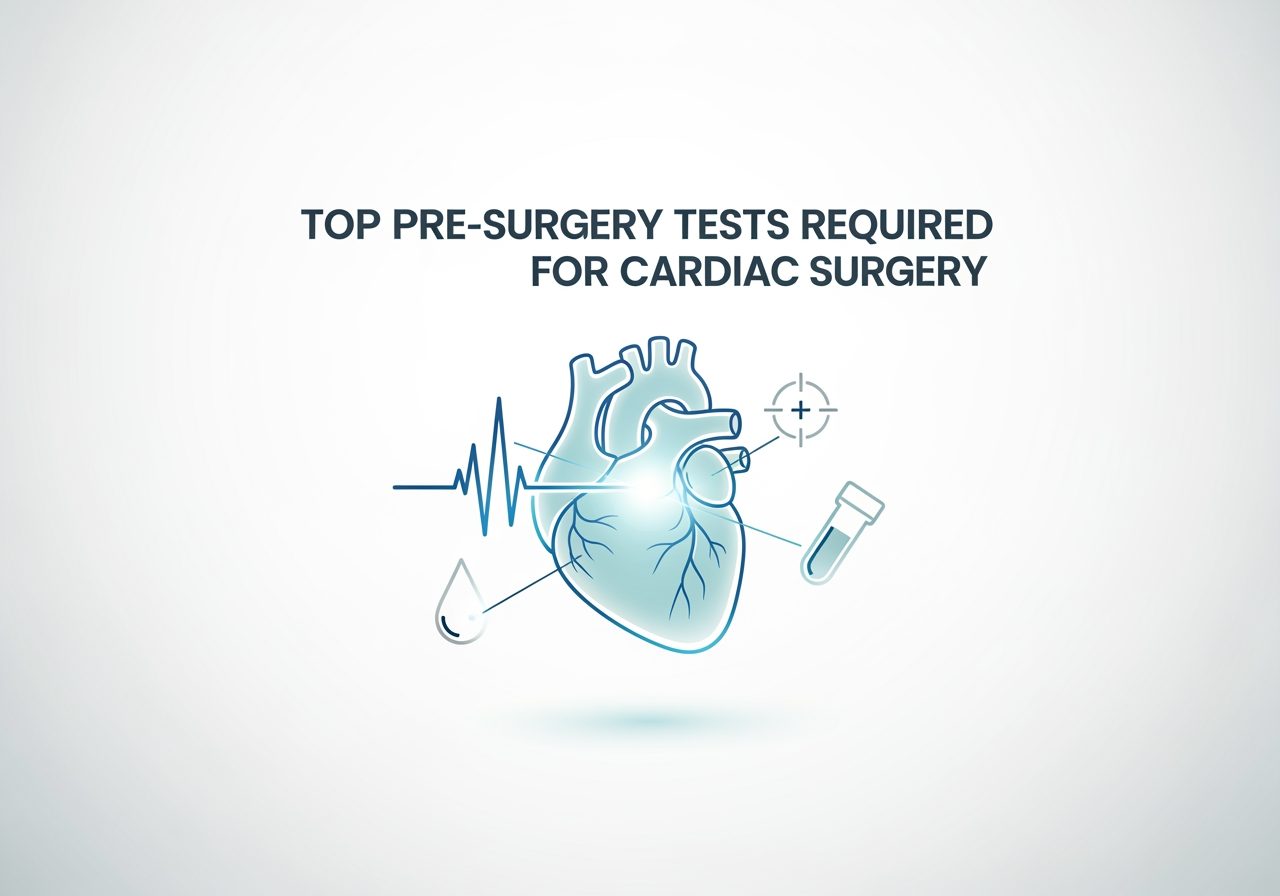
Top Pre-Surgery Tests Required for Cardiac Surgery
13 Nov, 2025
 Healthtrip
HealthtripElectrocardiogram (ECG or EKG)
An electrocardiogram, often called an ECG or EKG, is a cornerstone of pre-surgery cardiac assessments. This non-invasive test acts like a window into your heart's electrical activity, painting a picture of how the organ is functioning. Imagine your heart as a meticulously orchestrated orchestra, where each electrical impulse is a note that needs to be perfectly timed. The ECG detects and records these electrical signals, allowing doctors to identify any irregularities in rhythm or potential damage to the heart muscle. It's a bit like a detective uncovering clues, helping to pinpoint underlying issues such as arrhythmias (irregular heartbeats), previous heart attacks, or even signs of heart muscle thickening. The procedure itself is straightforward and painless. Small electrodes are attached to your chest, arms, and legs, and these electrodes pick up the electrical impulses from your heart. The data is then translated into a visual representation on a graph, which your doctor will meticulously analyze. For those seeking cardiac care, Healthtrip can connect you with leading facilities like Fortis Hospital, Noida, and Vejthani Hospital in Bangkok, where experienced cardiologists utilize ECGs as a crucial tool in their diagnostic toolkit. Ultimately, the ECG provides valuable insights that help your medical team personalize your treatment plan and ensure your heart is ready for surgery.
Most popular procedures in India
Echocardiogram
Think of an echocardiogram as an ultrasound for your heart. It uses sound waves to create moving pictures of your heart, giving doctors a real-time view of its structure and function. This non-invasive test is like having a backstage pass to see your heart's inner workings, observing how well the heart muscle is contracting, how the valves are opening and closing, and how blood is flowing through the chambers. It provides vital information about the size and shape of your heart, as well as any abnormalities that might be present. An echocardiogram is particularly useful in detecting conditions like heart valve problems, congenital heart defects, or even signs of heart failure. There are several types of echocardiograms, including transthoracic (where the probe is placed on your chest), transesophageal (where the probe is inserted down your esophagus), and stress echocardiograms (where images are taken before and after exercise). The choice of which type to use will depend on your specific needs and the information your doctor is seeking. Healthtrip understands the importance of accurate diagnostics, which is why we partner with hospitals like Memorial Bahçelievler Hospital and Saudi German Hospital Cairo, Egypt, that offer state-of-the-art echocardiography services, ensuring that you receive the most comprehensive assessment possible before your surgery. After all, knowing the landscape of your heart is crucial for a successful surgery.
Wellness Treatments
Give yourself the time to relax
Lowest Prices Guaranteed!

Lowest Prices Guaranteed!
Blood Tests
Blood tests are an indispensable part of pre-surgery evaluations, providing a wealth of information about your overall health and how your body is functioning. These tests are like a comprehensive report card, offering insights into everything from your kidney and liver function to your blood clotting ability and electrolyte balance. For cardiac surgery, specific blood tests are particularly important. A complete blood count (CBC) can reveal signs of infection or anemia, while a metabolic panel assesses kidney and liver function, crucial for ensuring your body can process medications and recover effectively after surgery. Coagulation tests, such as prothrombin time (PT) and partial thromboplastin time (PTT), measure how well your blood clots, which is essential for preventing excessive bleeding during and after the procedure. Electrolyte levels, such as sodium and potassium, are also carefully monitored, as imbalances can affect heart rhythm and overall health. Furthermore, specific cardiac biomarkers, like troponin, may be measured to rule out recent heart damage. The process itself is relatively quick and painless. A small sample of blood is drawn from a vein in your arm and sent to a laboratory for analysis. Healthtrip recognizes the significance of thorough pre-operative assessments, connecting you with leading hospitals like Bangkok Hospital and NMC Specialty Hospital, Abu Dhabi, where comprehensive blood testing is a standard part of the pre-surgical protocol, ensuring your safety and optimal outcomes.
Chest X-Ray
A chest X-ray is a quick and painless imaging test that provides a snapshot of your heart and lungs. Think of it as a basic architectural blueprint, revealing the size and shape of your heart, as well as the condition of your lungs and surrounding blood vessels. While not as detailed as some other cardiac tests, a chest X-ray can identify potential problems that might impact your surgery, such as an enlarged heart (cardiomegaly), fluid accumulation in the lungs (pulmonary edema), or signs of infection like pneumonia. It can also help to rule out other conditions that might be causing your symptoms. The procedure is simple and takes only a few minutes. You'll stand in front of an X-ray machine, and a small dose of radiation will pass through your chest, creating an image on a detector. The image is then reviewed by a radiologist, who will look for any abnormalities. Although a chest X-ray won't provide a complete picture of your heart's function, it offers valuable preliminary information that can guide further testing and help your medical team assess your overall health. Healthtrip understands the importance of comprehensive pre-operative evaluations, which is why we partner with hospitals such as Saudi German Hospital Dammam and Yanhee International Hospital, offering advanced imaging services to ensure your medical team has a clear understanding of your condition before surgery, maximizing safety and minimizing potential complications.
Cardiac Catheterization (Angiogram)
Cardiac catheterization, often referred to as an angiogram, is a more invasive but highly informative procedure that provides a detailed look at your coronary arteries. Imagine it as a road map of the vessels supplying blood to your heart, allowing doctors to identify any blockages or narrowing that could be causing chest pain or other heart-related symptoms. During the procedure, a thin, flexible tube called a catheter is inserted into a blood vessel in your arm or groin and guided to your heart. A contrast dye is then injected through the catheter, making the coronary arteries visible on an X-ray monitor. This allows doctors to see the extent and location of any blockages, which is crucial for determining the best course of treatment, whether it be medication, angioplasty (ballooning open the blocked artery), or bypass surgery. While the procedure is generally safe, it does carry some risks, such as bleeding, infection, or a reaction to the contrast dye. However, the benefits of obtaining detailed information about your coronary arteries often outweigh the risks, especially when planning for cardiac surgery. Healthtrip recognizes the importance of access to advanced diagnostic procedures, connecting you with renowned cardiac centers like LIV Hospital, Istanbul, and Mount Elizabeth Hospital in Singapore, where experienced cardiologists perform angiograms with precision and care, ensuring you receive the most accurate assessment possible before your surgery. Ultimately, an angiogram empowers your medical team to make informed decisions, optimizing your chances of a successful outcome.
Complete Blood Count (CBC)
Embarking on a medical journey, especially one that takes you across borders with Healthtrip, can feel like stepping into the unknown. That's why understanding the essential diagnostic tests that often pave the way for treatment is crucial. One of the most fundamental and frequently ordered tests is the Complete Blood Count, or CBC. Think of it as a detailed snapshot of your blood, providing a wealth of information about your overall health. At hospitals like Saudi German Hospital Cairo, Egypt, or even during initial consultations facilitated by Healthtrip, a CBC is often a starting point to assess your condition. This test isn't just about counting cells; it's about uncovering potential issues that might be lurking beneath the surface. It assesses the different types of cells in your blood, including red blood cells, white blood cells, and platelets. Red blood cells carry oxygen, white blood cells fight infection, and platelets help with blood clotting. Any abnormalities in these cell counts can signal various health problems, from anemia to infections to even more serious conditions.
Imagine receiving a CBC report – it might seem like a jumble of numbers and abbreviations, but each value holds a piece of the puzzle. For example, a low red blood cell count could indicate anemia, which can leave you feeling tired and weak. On the other hand, a high white blood cell count might suggest an infection your body is actively fighting. Platelet counts are equally important; too few platelets can increase your risk of bleeding, while too many can lead to blood clots. The beauty of a CBC is its versatility. It can help doctors diagnose a wide range of conditions, monitor the effectiveness of treatments, and even detect problems before they become severe. So, whether you're planning a trip to Vejthani Hospital in Bangkok or consulting with specialists through Healthtrip, remember that a CBC is often the first step towards understanding and addressing your health concerns. It's a simple yet powerful tool that provides invaluable insights into your body's inner workings.
The significance of a CBC extends beyond just diagnosing illnesses; it's also a crucial tool for monitoring the progress of treatment. For instance, if you're undergoing chemotherapy, regular CBCs can help doctors at places like Fortis Memorial Research Institute, Gurgaon monitor how your body is responding to the treatment and adjust the dosage accordingly. Similarly, if you're taking medications that can affect your blood cell counts, a CBC can help ensure that your levels remain within a safe range. The accuracy and reliability of CBC results are paramount, which is why Healthtrip partners with reputable hospitals and laboratories that adhere to strict quality control standards. This ensures that you receive the most accurate and reliable information about your health, no matter where you are in the world. Ultimately, a CBC is more than just a blood test; it's a window into your overall health and a valuable tool for guiding your medical care. It's a testament to the power of simple diagnostics in helping you navigate your health journey with confidence and clarity, especially when seeking treatment abroad with the support of Healthtrip.
Electrolyte and Renal Function Tests
Venturing into the realm of medical assessments, especially when considering international healthcare options through Healthtrip, it's vital to understand the significance of electrolyte and renal function tests. These tests offer a peek into the intricate workings of your kidneys and the balance of crucial minerals in your body. Electrolytes, such as sodium, potassium, chloride, and bicarbonate, are vital for maintaining fluid balance, nerve function, and muscle contractions. Your kidneys play a starring role in regulating these electrolytes, ensuring they're at the right levels for your body to function optimally. Renal function tests, on the other hand, directly assess how well your kidneys are filtering waste and excess fluid from your blood. Think of it as checking the efficiency of your body's natural filtration system. Hospitals like Bangkok Hospital often rely on these tests to get a comprehensive understanding of a patient's overall health, particularly before any major procedure or treatment.
Imagine your body as a finely tuned machine, where electrolytes are the essential lubricants and the kidneys are the filters that keep everything running smoothly. When electrolyte levels are off-kilter, it can lead to a range of symptoms, from muscle cramps and weakness to irregular heartbeats and even seizures. Similarly, impaired kidney function can cause fluid buildup, high blood pressure, and a host of other complications. Electrolyte and renal function tests are often performed together because they're closely interconnected. The kidneys play a central role in regulating electrolyte balance, and electrolyte imbalances can, in turn, affect kidney function. For example, dehydration can lead to both electrolyte imbalances and reduced kidney function, highlighting the importance of maintaining adequate hydration, especially in warmer climates. At hospitals like NMC Specialty Hospital, Al Nahda, Dubai, these tests are regularly used to monitor patients with chronic conditions like diabetes and hypertension, which can significantly impact kidney function. They also play a crucial role in assessing patients before and after surgery, ensuring that their electrolyte and fluid balance is properly managed.
Understanding your electrolyte and renal function test results is key to making informed decisions about your health, especially when seeking treatment abroad. For instance, if you're considering a trip to Hisar Intercontinental Hospital in Turkey for a specific procedure, knowing your kidney function beforehand can help your doctors tailor your treatment plan to minimize any potential risks. Healthtrip understands the importance of providing patients with access to quality healthcare, which is why it partners with hospitals that offer comprehensive diagnostic services. By ensuring that you have access to accurate and reliable electrolyte and renal function tests, Healthtrip empowers you to take control of your health and make informed decisions about your treatment options. These tests are not just about numbers on a report; they're about understanding your body's unique needs and taking proactive steps to maintain your well-being. They're a crucial part of the holistic approach to healthcare that Healthtrip champions, ensuring that you receive the best possible care, no matter where you are in the world.
Coagulation Studies
When planning medical treatments abroad with Healthtrip, understanding the ins and outs of various diagnostic tests becomes paramount. Among these, coagulation studies, also known as blood clotting tests, play a crucial role in ensuring your safety and well-being. These tests assess your blood's ability to clot properly, a vital function that prevents excessive bleeding after an injury or surgery. Think of it as evaluating your body's natural defense mechanism against blood loss. Coagulation studies are often performed before surgical procedures, especially those involving significant blood loss, to identify any underlying bleeding disorders that could complicate the procedure. They're also essential for monitoring patients who are taking anticoagulant medications, such as warfarin or heparin, which are used to prevent blood clots. Hospitals like Mount Elizabeth Hospital in Singapore routinely conduct these tests to ensure patient safety and optimize treatment outcomes.
Imagine your blood vessels as a complex network of roads, and blood clots as the traffic controllers that prevent leaks and maintain flow. When this system malfunctions, it can lead to either excessive bleeding or the formation of unwanted clots, both of which can have serious consequences. Coagulation studies help doctors assess the effectiveness of these "traffic controllers" and identify any potential problems before they become critical. These tests typically measure several different factors, including the time it takes for your blood to clot (prothrombin time or PT, and partial thromboplastin time or PTT), as well as the levels of certain clotting factors in your blood. Abnormal results can indicate various conditions, such as hemophilia, von Willebrand disease, or liver disease, which can affect your blood's ability to clot properly. At hospitals like Vejthani Hospital in Thailand, coagulation studies are an integral part of the pre-operative assessment, helping surgeons to anticipate and manage any potential bleeding risks during surgery.
Coagulation studies are not just about identifying bleeding disorders; they're also essential for monitoring the effectiveness of anticoagulant medications. These medications are often prescribed to patients with conditions like atrial fibrillation or deep vein thrombosis to prevent blood clots from forming. However, it's crucial to ensure that the dosage is carefully controlled, as too much medication can increase the risk of bleeding, while too little may not be effective in preventing clots. Regular coagulation studies, such as the INR (International Normalized Ratio) test, are used to monitor the effects of warfarin and adjust the dosage accordingly. Healthtrip understands the importance of personalized care, which is why it partners with hospitals that offer comprehensive coagulation testing services. By ensuring that your blood clotting function is properly assessed and managed, Healthtrip helps you to navigate your medical journey with confidence and peace of mind. Whether you're undergoing surgery, taking anticoagulant medications, or simply seeking a comprehensive health assessment, coagulation studies are a vital tool for ensuring your safety and well-being, particularly when traveling abroad for medical treatment. Consider facilities like LIV Hospital, Istanbul which are well-equipped for such testing.
Also Read:
Electrocardiogram (ECG) and Echocardiogram
Alright, let's talk about your heart's electrical activity and its structure, shall we? An Electrocardiogram, or ECG, is a simple, non-invasive test that records the electrical signals in your heart. Think of it as eavesdropping on your heart's internal conversations. It can detect irregularities in your heart rhythm, such as atrial fibrillation, which, by the way, isn't as scary as it sounds, especially if caught early. It can also show evidence of past heart attacks or ongoing heart issues. Preparation for an ECG is minimal; you just lie still while small electrodes are attached to your chest, arms, and legs. It's painless, quick, and provides a wealth of information. Hospitals like Fortis Escorts Heart Institute and Vejthani Hospital are well-equipped to perform this test, offering accurate readings and expert interpretation. Imagine getting this done in the bustling city of New Delhi at Fortis Escorts Heart Institute, knowing you're taking proactive steps for your heart health. Or perhaps you are spending your time in Bangkok, and Vejthani Hospital is your destination for this test. The peace of mind is priceless.
Now, moving on to the Echocardiogram, often referred to as an "echo." This test uses ultrasound waves to create a moving picture of your heart. It allows doctors to see the size and shape of your heart, how well your heart chambers and valves are working, and if there are any abnormalities. It's like getting a sneak peek inside your heart's inner workings! There are different types of echocardiograms, including transthoracic (performed on the chest), transesophageal (a probe is passed down the esophagus), and stress echocardiograms (performed during exercise or with medication to simulate exercise). Depending on the type, the preparation can vary. For a transthoracic echo, you simply lie on your left side while a technician moves a probe around your chest. A transesophageal echo requires a bit more preparation, including fasting and possibly sedation. Hospitals like Memorial Sisli Hospital in Istanbul or Bangkok Hospital in Thailand routinely perform echocardiograms, providing comprehensive cardiac assessments. Picture yourself at Memorial Sisli Hospital, overlooking the vibrant city, knowing that you're in good hands. Or perhaps you're in the heart of Bangkok, at Bangkok Hospital, where cutting-edge technology meets compassionate care. These tests, while they might sound intimidating, are invaluable tools for ensuring your heart is healthy and happy.
Chest X-Ray and Pulmonary Function Tests
Let’s talk about your lungs, those amazing organs that allow us to breathe and experience the world fully. A chest X-ray is a quick and painless imaging test that uses a small amount of radiation to create pictures of the structures inside your chest, including your heart, lungs, blood vessels, and bones. It's often used to diagnose conditions such as pneumonia, bronchitis, emphysema, and even lung cancer. The great thing about a chest X-ray is that it's readily available and can provide valuable information quickly. Preparation is simple: you might be asked to remove jewelry or metal objects, and you'll stand in front of the X-ray machine while the technician takes the images. Places like Saudi German Hospital Cairo, Egypt or even Yanhee International Hospital in Bangkok offer chest X-rays with state-of-the-art equipment. Imagine it: You're in Cairo, feeling a bit under the weather, and a quick visit to Saudi German Hospital Cairo gives you the answers you need. Or you're exploring the vibrant streets of Bangkok, and Yanhee International Hospital is right there, ready to assist. Proactive healthcare at your fingertips!
Now, let's dive into Pulmonary Function Tests (PFTs). These tests measure how well your lungs are working. They assess lung volume, capacity, flow rates, and gas exchange. PFTs can help diagnose and monitor conditions like asthma, chronic obstructive pulmonary disease (COPD), and pulmonary fibrosis. There are several types of PFTs, including spirometry, lung volume measurements, and diffusion capacity tests. Spirometry is the most common PFT and involves breathing into a mouthpiece connected to a machine called a spirometer. It measures how much air you can inhale and exhale, and how quickly you can exhale. Lung volume measurements determine the total amount of air your lungs can hold, while diffusion capacity tests assess how well oxygen passes from your lungs into your bloodstream. Hospitals like Fortis Hospital, Noida, and Parkway Hospitals Singapore offer comprehensive PFTs performed by experienced respiratory therapists. Think about heading to Fortis Hospital, Noida, knowing you're getting top-notch care from skilled professionals. Or imagine the peace of mind you'd have at Parkway Hospitals Singapore, knowing you're benefiting from world-class expertise. Early detection and monitoring are key to managing lung conditions effectively, and these tests make it possible.
Also Read:
Coronary Angiogram
Okay, let's get to the heart of the matter, quite literally. A coronary angiogram is a diagnostic procedure that helps doctors visualize the blood vessels that supply blood to your heart, known as the coronary arteries. It's a crucial test for detecting blockages or narrowing in these arteries, which can lead to chest pain (angina), shortness of breath, or even a heart attack. Think of it as a high-definition map of your heart's highways. During the procedure, a thin, flexible tube called a catheter is inserted into a blood vessel, usually in your groin or arm, and guided to your heart. A contrast dye is then injected through the catheter, which makes the coronary arteries visible on X-ray images. Doctors can then see if there are any blockages or narrowings. Now, I know what you're thinking: "That sounds a bit intense!" But rest assured, it's a relatively safe procedure, and the benefits of identifying and treating coronary artery disease far outweigh the risks. Preparation for a coronary angiogram typically involves fasting for several hours beforehand and informing your doctor about any allergies or medications you're taking.
If you're considering a coronary angiogram, you'll be glad to know that many world-class hospitals offer this procedure. Fortis Escorts Heart Institute in New Delhi, Memorial Bahçelievler Hospital in Istanbul, and Bangkok Hospital in Thailand are just a few examples. These hospitals have experienced cardiologists and state-of-the-art facilities to ensure the best possible outcomes. Imagine yourself at Fortis Escorts Heart Institute, surrounded by a team of caring professionals who are dedicated to your well-being. Or perhaps you're in Istanbul, at Memorial Bahçelievler Hospital, feeling confident that you're receiving world-class care. Maybe you're in Bangkok, at Bangkok Hospital, where cutting-edge technology meets compassionate service. The angiogram procedure usually takes about 30 minutes to an hour, and you'll likely need to stay in the hospital for a few hours or overnight for observation. Afterwards, you may experience some soreness or bruising at the insertion site, but this usually resolves within a few days. The results of the angiogram will help your doctor determine the best course of treatment, which may include lifestyle changes, medication, angioplasty (a procedure to open blocked arteries), or coronary artery bypass surgery. It's all about getting you back on the road to a healthier, happier heart!
Also Read:
Conclusion
So, there you have it – a friendly overview of some key diagnostic tests crucial for assessing your overall health and well-being. From comprehensive blood work that paints a detailed picture of your internal environment to sophisticated imaging techniques that allow doctors to peek inside your heart and lungs, these tests are powerful tools in the fight against disease. Remember, early detection is often the best medicine, and regular check-ups can make a world of difference. Places like Saudi German Hospital Al-Madinah Almonawara, Quironsalud Hospital Murcia, and NMC Royal Hospital, DIP, Dubai offer comprehensive health check-up packages tailored to your individual needs. Imagine yourself in Al-Madinah, taking proactive steps to safeguard your health at Saudi German Hospital Al-Madinah Almonawara. Or perhaps you're in Murcia, Spain, prioritizing your well-being at Quironsalud Hospital Murcia. Maybe you're in Dubai, at NMC Royal Hospital, DIP, making your health a top priority. The peace of mind that comes with knowing you're taking care of yourself is priceless.
Investing in your health is the best investment you can make. It's not just about living longer; it's about living better, more fully, and with more joy. Don't wait for symptoms to appear before seeking medical attention. Be proactive, be informed, and be your own health advocate. And remember, Healthtrip is here to guide you every step of the way, connecting you with top-notch medical facilities and experienced healthcare professionals around the globe. Whether you're looking for a routine check-up or specialized treatment, we're here to help you navigate the complex world of healthcare and make informed decisions that are right for you. So, take a deep breath, remember to smile, and prioritize your health – you deserve it!
Related Blogs

How Healthtrip Ensures Evidence-Based Care in IVF Treatment
Explore evaluations, innovations, hospital comparisons, and global success insights for
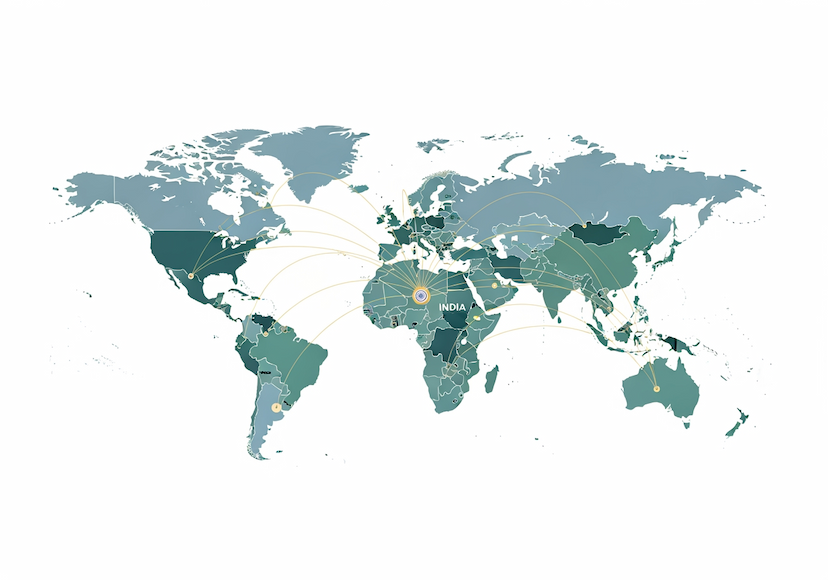
Success Rates of IVF Treatment in India Compared to Other Countries
Explore evaluations, innovations, hospital comparisons, and global success insights for

Complete Medical Evaluation Process Before IVF Treatment
Explore evaluations, innovations, hospital comparisons, and global success insights for
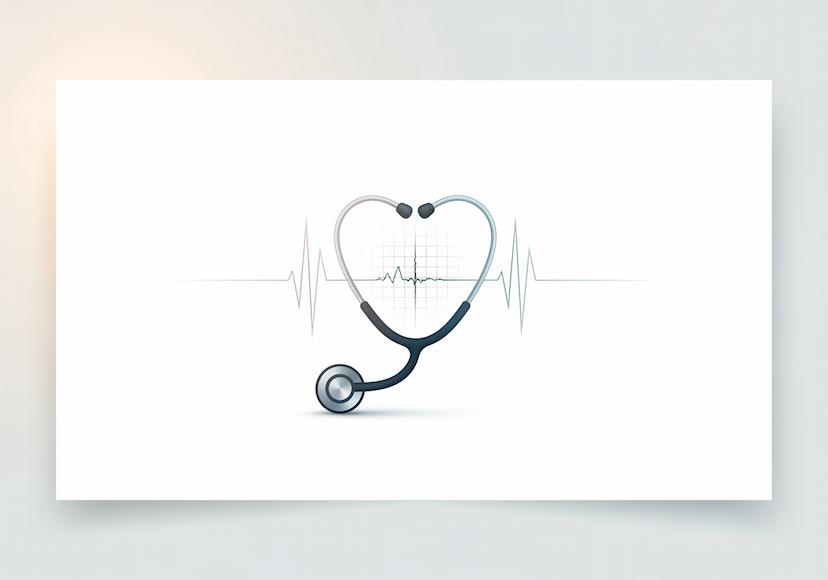
Common Myths About Cardiac Surgery Doctors Bust Them
Explore evaluations, innovations, hospital comparisons, and global success insights for
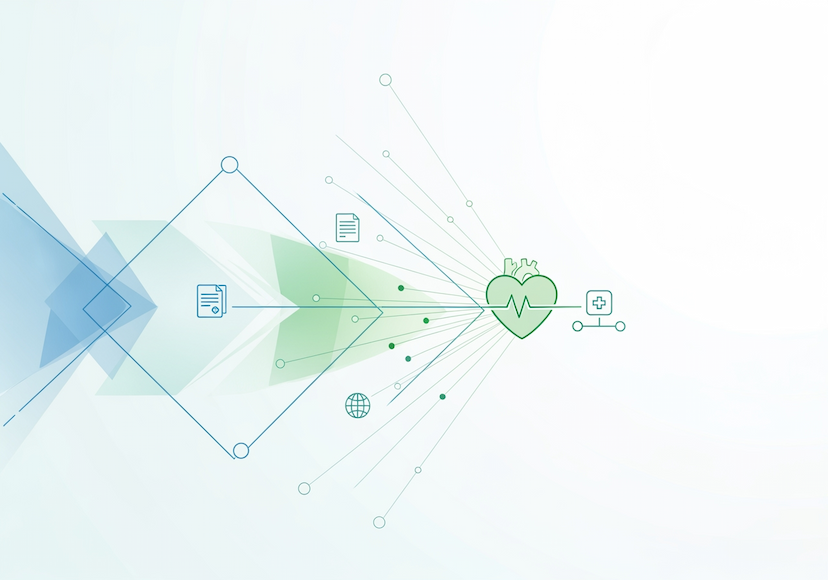
How Healthtrip Coordinates Cross-Border Medical Records for Cardiac Surgery
Explore evaluations, innovations, hospital comparisons, and global success insights for
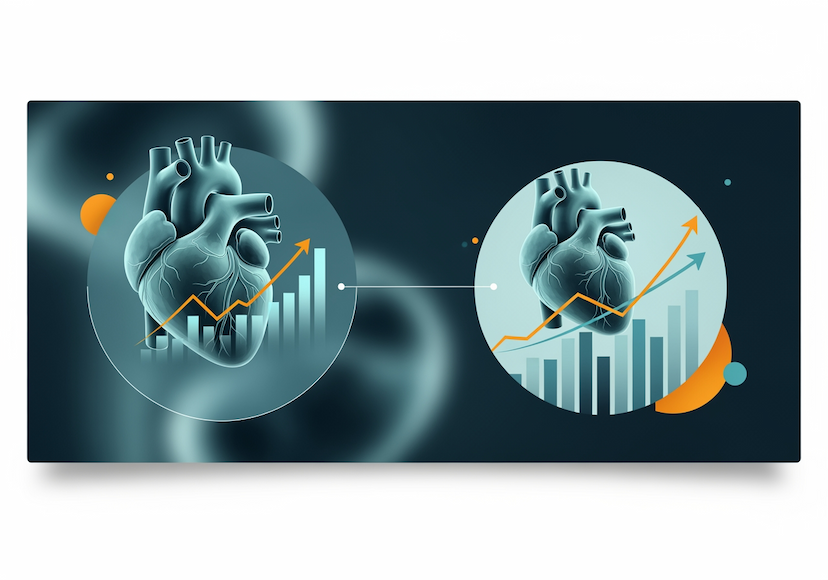
Why India Leads in Affordable Cardiac Surgery Analysis
Explore evaluations, innovations, hospital comparisons, and global success insights for










